Who goes to the theatre to feel sad? That is, knowing full well that they won’t be going home with a skip in their step. Many people, it would appear, given the success of a small touring dance show based on a book by the poet and broadcaster Michael Rosen.
Sad Book was written in the wake of the sudden death, from meningitis, of Rosen’s 19-year-old son Eddie. Published in 2004, with illustrations by Quentin Blake, it was originally marketed as a children’s book, but its appeal has clearly been much wider and it regularly appears on lists of recommended texts for adults blindsided by grief.
In typically sparse Rosenesque prose, it deals with the spiritual darkness that descended on the writer in the months following his loss, and the unfathomable lurches of joy and sadness that he felt when recollecting happy episodes of his son’s life. The book doesn’t pull its punches, and nor does the multi-media adaptation put together by 201 Dance Company, which started life on the Edinburgh Fringe. Yet in the manner of everything Rosen does, there are things that bring a smile, and even laughter.
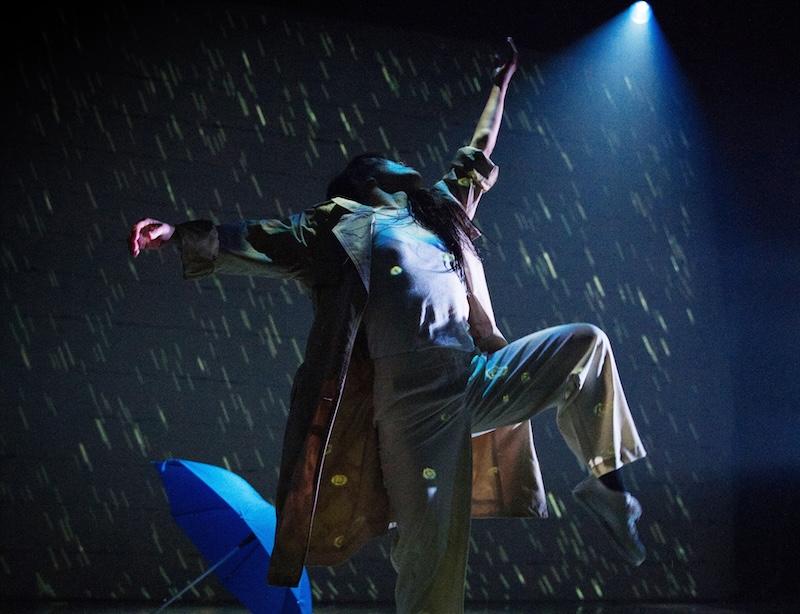 The book also makes that essential leap from the personal and particular to the universal. A major strength of the adaptation by director and choreographer Andrea Walker is the way it finds a visual parallel with the experience of reading, and writing, the original text. An actor who resembles Rosen (tall, thin, a bit funny-looking) sits at a desk, pen in hand, and as the words he writes appear in real time behind him on a screen, we hear the actual Michael Rosen read them aloud (at the Hackney Empire this happened live from the side of the stage). The opening scene shows the Rosen character at his own birthday party, flanked by people we assume to be his other children and his wife. “This is me being sad,” goes the text. “Maybe you think I’m being happy in this picture. Really, I’m being sad but pretending I’m happy.”
The book also makes that essential leap from the personal and particular to the universal. A major strength of the adaptation by director and choreographer Andrea Walker is the way it finds a visual parallel with the experience of reading, and writing, the original text. An actor who resembles Rosen (tall, thin, a bit funny-looking) sits at a desk, pen in hand, and as the words he writes appear in real time behind him on a screen, we hear the actual Michael Rosen read them aloud (at the Hackney Empire this happened live from the side of the stage). The opening scene shows the Rosen character at his own birthday party, flanked by people we assume to be his other children and his wife. “This is me being sad,” goes the text. “Maybe you think I’m being happy in this picture. Really, I’m being sad but pretending I’m happy.”
Unlikely as it might seem, the show’s live dance element underpins the written and spoken narrative without once being superfluous or distracting. At the birthday gathering, silhouetted figures form a flickering framework of gestural busy-ness – reaching for imaginary food, pouring tea, reacting to each other, as if on video fast-forward – leaving the Rosen figure in a bubble of isolating stillness. In a scene on a rain-drenched city street, the dancers become indifferent passers-by, hunched under lighted umbrellas. On a technical level, the dancing is top-notch.
The story is also told in animation, summoning the scratchy-scribbly style of Quentin Blake’s ink drawings that dominate the book. We see a small boy splashing in puddles or climbing a tree. We see the well-worn family sofa on which Eddie and his dad would practise football “saves”. Impressively, we see a rolling panorama, sketched into being, line by line, of the cityscape through which Rosen repeatedly wanders. Neither text nor visual element ever teeter into the sentimental, although the music (all original, from various hands), sometimes tips over the edge. The economy and elegance of Rosen’s writing needs no emotional overlay. He is essentially a poet, one w understands the resonances of words, and the silences between them.
In a deft touch, the stuff of Sad Book moves on from losing a child to losing an aged parent – an experience that touches or will touch almost all of us. Cue a vibrant solo dance with an umbrella (the excellent Tamae Yoneda, pictured above), as the sad old lady of Rosen’s recent memory shrugs off her debilitating years, leaping and twirling her umbrella, springing like a new lamb and, yes, stamping in puddles. This is a bold piece of theatre about navigating complex feelings - what we feel, what we show. Excepting a few stretches of music that over-sell the goods, it finds precisely the right means to do that. Here’s hoping 201 Dance Company’s will mount a second UK tour.

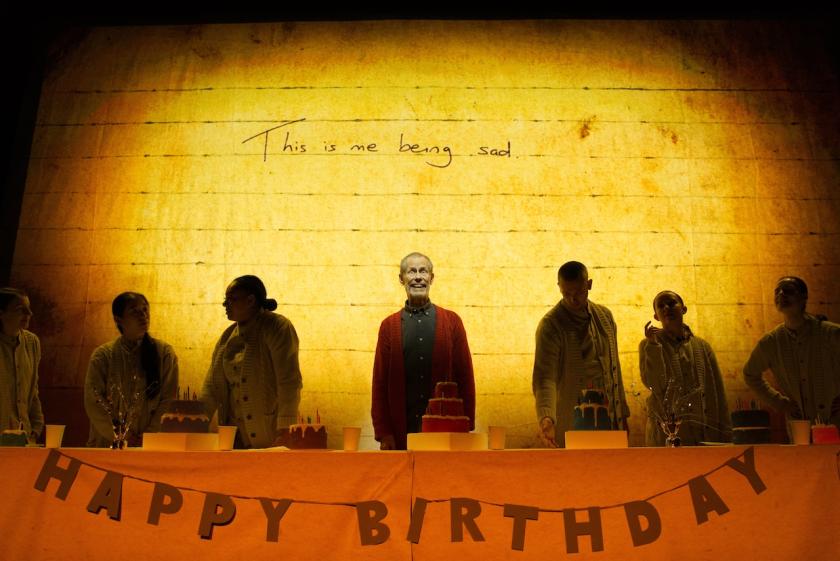


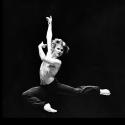

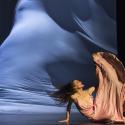
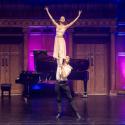

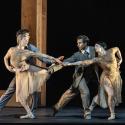


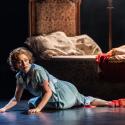

Add comment